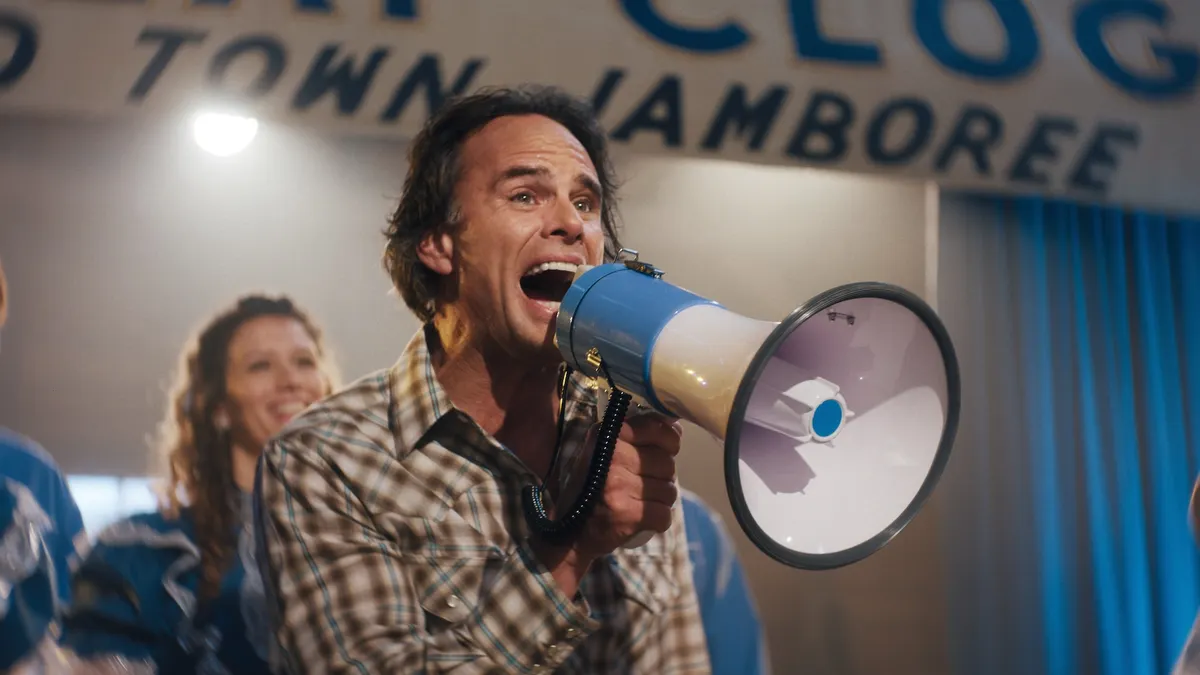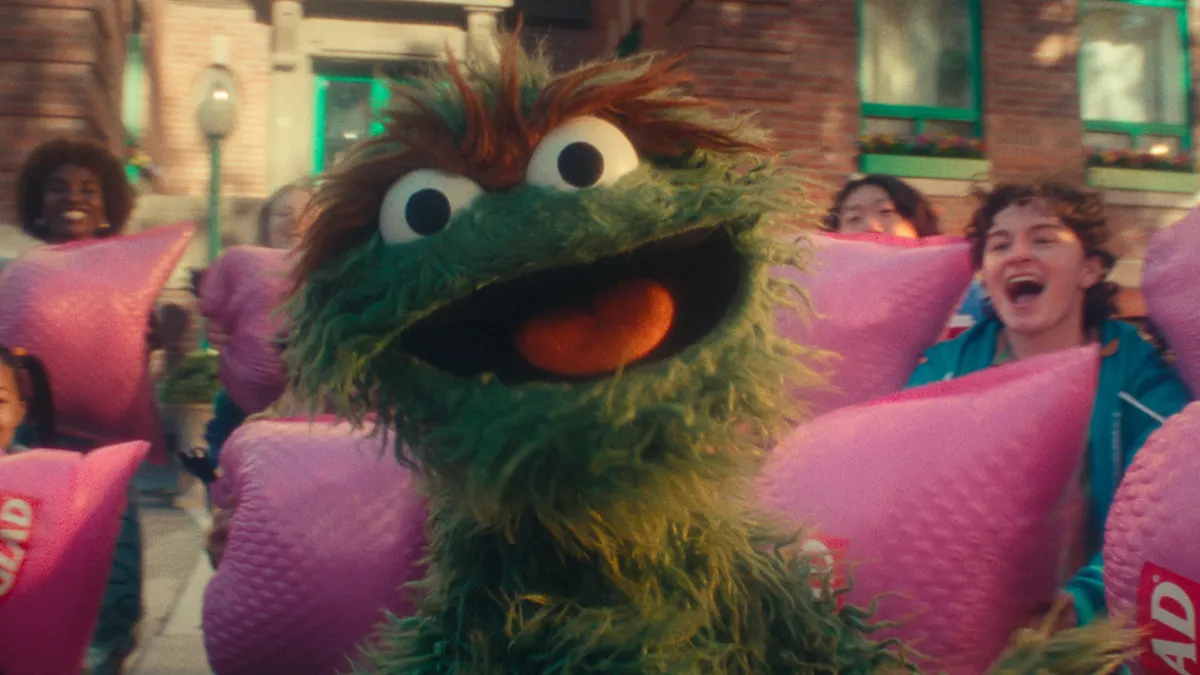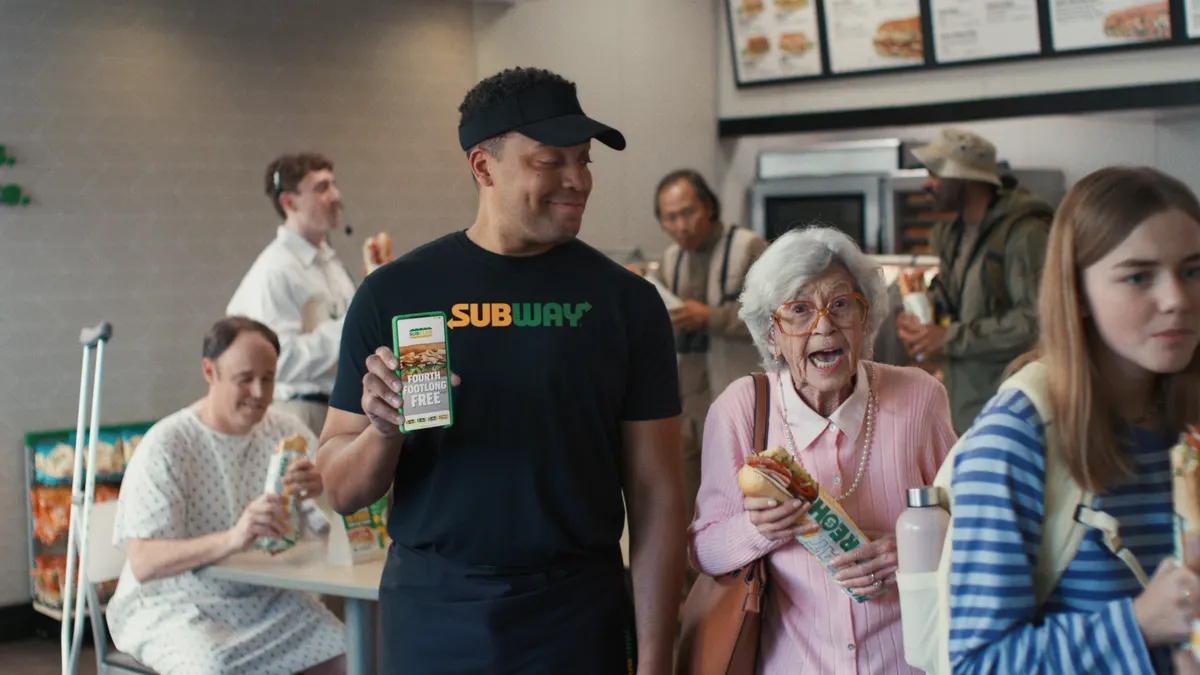The run-up and aftermath of the last U.S. presidential election proved a daunting time for brand marketers, as many that joined the political fray — whether by choice or circumstance — saw intense public backlash. South African-Portuguese chicken chain Nando's Peri-Peri, which has a strong presence in Washington, DC, and a rich history of inclusivity, felt a thick tension in the capital's air heading into the inauguration of President Donald Trump — a tension that doubled as an opportunity to send a bold message and boost awareness.
Instead of backing away from a conversation proven to be rife with risk, Nando's, with the help of agency Nobody, charged headfirst in with a diversity-minded campaign that saw a sales lift of 122% during inauguration week, along with another $14.8 million in earned media and an 8% lift in brand perception. Called "#Everyone is Welcome," the campaign involved plainspoken, simple posters and print inserts that read: "Nando's Peri-Peri is an Immigrant Employing, Gay Loving, Muslim Respecting, Racism Opposing, Equal Paying, Multi-Cultural chicken restaurant where #Everyone Is Welcome."
On Inauguration Day and beyond, even if you’ve never sat at one of our tables, you’re welcome to stand with us. #EveryoneIsWelcome pic.twitter.com/cn24LOzN2t
— Nando's PERi-PERi (@NandosUSA) January 9, 2017
"We put it up in restaurants, we put it up in The Washington Post Express and kind of a strange thing happened,” DT French, president of Nobody, said at the AMA's Mid-Atlantic Marketing Summit in April. "Everyone started taking photos of these posters. It was an idea that was shareable.
"If you step back and ask what type of campaign is this: This is a print campaign, possibly an out-of-home campaign, but at the end of the day it wasn't on Facebook and it wasn't on Twitter until consumers and other people put it there," he said. "The idea is what drove it to those platforms."
Staying true to brand heritage
Nando's, which was founded in post-Apartheid South Africa, has a history of both championing diversity and also being brazen in tackling political topics.
A 2011 spot depicting Robert Mugabe getting shot with a water pistol lead to so many bomb threats that the brand had to shut down stores in South Africa and Mozambique; during the last U.S. government shutdown, in 2013, Nando's ran a free boneless chicken promotion as a critique of Congress' perceived spinelessness.
"Because they're in the restaurant industry, much of the people they employ are immigrants, minorities, people of color, women," French said of Nando's. “All these sorts that, given the current environment the past several months, have been under a little bit of scrutiny."
Based on that track record and reputation, the question wasn't whether Nando's would do something about the inauguration — it was about how best to tackle it, and in a way that made an outsized impact with Nando's smaller U.S. presence and budget.
"There was a very long road to get here," French said. One of the biggest obstacles Nobody and Nando's faced in creating #Everyone is Welcome oddly drew from how inclusive the copy could be. The broader the statement — claiming to be accepting of all religious groups instead of those viewed as being targeted, such as Muslims — ultimately dulled the campaign's teeth.
"It was really important for the shareability of this to be able to make some people unhappy, make some people uncomfortable — that is what was the strength of the campaign," French said.
The final creative ultimately compromised with smaller subheads expanding on the statements made by the most prominently featured text, preserving the message but ensuring that all of the bases were covered in terms of inclusivity.
Social as a quality, not a channel
Despite these built-in risks, #Everyone is Welcome clearly and quickly connected where it counted. The first round of posters was successful enough that Nando's printed another 60,000 to share for free, along with running additional press inserts and giving away stickers.
In total, French said that the campaign generated 5,000 Instagram posts and appeared in 2 million Twitter conversations, along with being a trending topic in the D.C. area for two days — all with minimal social promotion. Celebrities French described as to the "left of Karl Marx" came out in support of it.
"And then something really strange happened because, as we got nearer to the inauguration, the protests started getting a little more serious and people started using our signs — a corporate advertisement — as a protest poster," French said.
"#Everyone is Welcome" began popping up at marches across the country, from D.C. to Portland, OR, on public property and in Ubers. News outlets including The Washington Post, NPR's "All Things Considered," CNN, The New York Times and even international media like Al Jazeera picked up the story.
"But that was all driven by social interaction, and that was all driven by not what we think of as social media," French said.
"I'm very passionate about the fact that social is not a channel. Social is a quality," he explained. "So, social as you approach it, it doesn't matter about Facebook, Twitter or anything like that — it matters, is this shareable? Will somebody talk about this? Does anyone care? [...] The idea itself has to be something that people share."
Contingency planning was key
While plenty of people clearly latched onto #Everyone is Welcome in a positive way, the threat of serious backlash, potentially even from the president himself, was a reality that needed to be accounted for. Examining voter data, Nando's and Nobody estimated at least 30% of people in the D.C. area might be angered by the promotion's message, in addition to visitors from out of town.
"When we were putting this campaign together, it's very easy to look at it and think: that's a brilliant idea. But we were kind of flying by the seat of our pants and it could've gone really wrong," French said.
What's worse was that the people on the front lines of dealing with any direct conflicts or criticism were also those #Everyone is Welcome serves as a sort of love letter to — the Nando's staff.
"We did a lot of training around contingency messaging," French said, noting that employees had to double down on learning conflict resolution and how to deescalate situations. "What if we have to take this down? What do we say? What if something does happen?"
But instead of being met with resistance from Nando's workers, the campaign provided a boost to company morale. French's client noted to him that the whole effort provided support to employees when it really counted and reinvigorated their love of their work, making the endeavor well worth the media expense.
"Holding your line on the message is really important from a contingency standpoint when people are trying to challenge you," French said.
"One of the things that Nando's excels at is sticking to the message that they're trying to get across," he added. "This campaign is not about politics, this campaign is not about the election [...] this campaign is about the identity of Nando's and them being proud of the things they stand for."



















